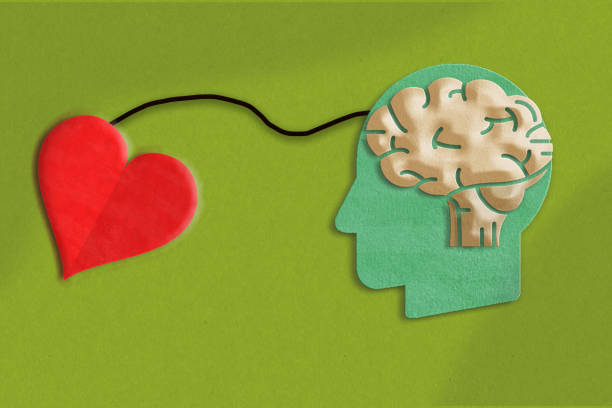Find it hard to control yourself in an argument? Looking for tips for dealing with anger?
You are not alone on this.
We all struggle with the emotion of anger most of the time.
However, the most important thing is learning to master your emotions and navigate difficult times and not allow your emotions to be in control of you.
In this article, we will be looking at 4 simple tips for dealing with anger by applying emotional fitness techniques.
Tips for Dealing With Anger; Learn & Practice Emotional Maturity
There are no magic tips for dealing with anger but we become better at mastering and managing our emotions and that of others.
The way you express your emotion during an argument or disagreement depicts how emotionally mature or immature you are.
To stay stable and peaceful with yourself and others, you must learn to express your emotions appropriately when relating with others.
The good thing is that anger management or emotional maturity is learnable.
Like any other skill such as carpentry, tailoring, or computing, we get emotionally fit and mature through knowledge and practice.
Are you Emotionally Matured?
The next tip for dealing with anger is to know your state of emotional well-being.
How do you respond or react during an argument or disagreement?
Emotionally immature people are often the first to raise their voices or start a fight during an argument.
Do you often blame someone else when events go bad?
Blaming others during difficult times could be a sign of emotional immaturity.
Tips for Dealing with Anger; Signs of Emotional Immaturity
Understanding the signs of emotional immaturity is a great tip for dealing with anger.

Here are a few signs of emotionally Immature People;
- They have rigid expectations of themselves and others.
- Quick to fight or raise their voices during an argument or disagreement.
- Quick to blame others when situations go bad.
- feeling excessively upset or annoyed over their mistakes or other people’s mistakes or misconduct.
- Inability to stay through difficult times.
- Afraid of failure or quick to avoid pain or difficult times.
- Distracting with objects of addiction instead of allowing the pains and healing from within.
- Lying during difficult situations.
- Shutting or shouting down at other people’s opinions.
- Unwillingness to spend time alone.
- Avoid challenging or uncomfortable discussions.
Let’s consider a few tips for dealing with anger by examining how emotionally fit or mature people behave.
Tips for Dealing with Anger; Signs of Emotional Maturity (The Beliefs that Drive E.M)

learning about ways emotionally matured people manage their emotions is another helpful tip for dealing with anger
Here are a few signs of emotionally Intelligence or maturity you can look toward emulating;
- They are observant of their emotions as well as others rather than reactive.
- Have no rigid expectations of themselves or others and so, they remember to make excuses for others’ faults.
- The belief that others are worthy of acceptance regardless of their conduct or misconduct.
- Understand that negative things will sometimes happen in life, and when they happen that doesn’t mean things are happening the way they shouldn’t.
- Their default response is peace.
- They are willing to put ego aside- They understand they may not often be right and are open to corrections.
4 Tips for Dealing with Anger- Improving your Emotional Maturity
Here are a few ideas or tips for dealing with anger you should begin implementing today to develop emotional resilience.
1. Observe rather than React

The first of the tips for dealing with anger is observation.
Learn to observe the other person’s reaction as well as yours in irritable situations.
Try not to allow ego to push you into feeding into the other person’s emotional immaturity.
You may not understand them at that point especially if you think they are unreasonable, but you can learn to observe the situation even while irritated.
2. Pause Before You React

Tips for dealing with anger 2, learn to pause before you react.
The default response would be to react or try to be heard.
However, instead of going with this default response, practice pausing intentionally to process your thoughts and emotions.
Remember the biggest victory is maintaining your happiness and peace not winning the argument.
Also, remember you can choose peace over winning the fight so you are totally in control of the situation and not the other way round.
3. Set Healthy Boundaries Ahead of time

The next tip for dealing with anger is proactiveness.
Recognize that overwhelming situations and irritable events will occur. What will you do (or not do) during such events?
A healthy response written down ahead gives you something to recall during difficult or frustrating situations.
What would I do or how would I respond when annoyed by my spouse/parent/siblings/strangers?
4. Fail Forward

Taking responsibility for your emotions is one of the most important tips for dealing with anger.
Choose to learn from every experience and keep self-correcting.
If you do this often, you would develop empathy for yourself and others.
Related Article: How to Be More Patient
Final Thoughts on Tips for Dealing With Anger

Of all the tips for dealing with anger mentioned in this article, here is what you may take home.
You may not often be in control of what happens to you, but you can control how you deal with it.
However, it takes practice to master your emotions, so keep growing as you practice.
Learning how to forgive and let go is also a great way to begin managing your emotion.
PS
I had like to know how you deal with angry or difficult situations.
Feel free to leave your comment in the comment section.
IF YOU HAVE BEEN LOOKING TO BOOK A COACH FOR ANGER MANAGEMENT FOR PERSONAL OR CORPORATE TRAINING, I WOULD BE GLAD TO WORK WITH YOU.



